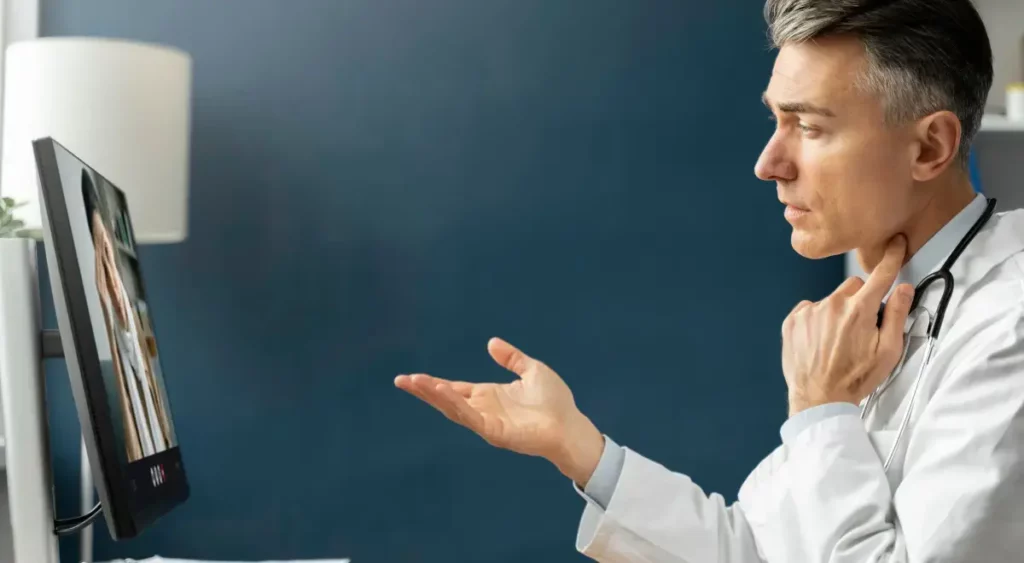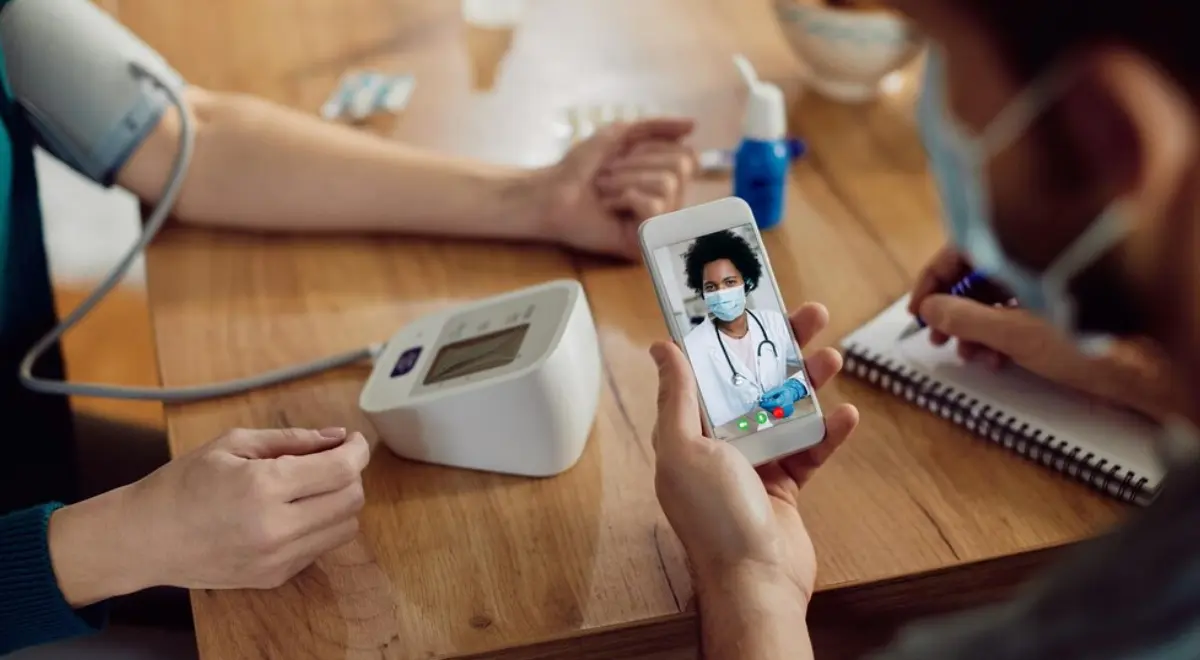Managing Rheumatoid Arthritis (RA) With Remote Patient Monitoring (RPM)

In the US, arthritis is one of the main causes of disability, according to the Centers for Disease Control and Prevention (CDC). Arthritis is a chronic condition where one or more joints become inflamed, causing restriction in movement, pain, and discomfort. Rheumatoid Arthritis and Osteoarthritis are the two most prevalent types of arthritis.
Rheumatoid Arthritis (RA) has the potential to significantly lower quality of life. Medication, physical rehabilitation, and surgery are among the forms of treatment available to treat RA.
One in four persons with rheumatoid arthritis complains of excruciating joint pain. As people age, arthritis becomes more common; approximately 50% of those over 65 years of age reported having a doctor’s diagnosis of arthritis.
Table of Contents
ToggleChallenges In Rheumatoid Arthritis (RA) Treatment
Rheumatoid arthritis is often difficult to treat or manage. Treatment efficacy can be impacted by known variables such as auto-antibody production, joint erosion, genetics, comorbidities, extra-articular symptoms, and pregnancy.
RA symptoms tend to change over time. Since patients visit their clinicians or healthcare providers every three to six months, and frequently, they often don’t remember reporting any symptoms they experienced in between the appointments.
Digital technology, such as Remote Patient Monitoring (RPM) gives clinicians and patients the ability to report their symptoms and vitals to create more efficient treatment programs. It is essential for patients to evaluate their disease progression to seek the right treatment that puts them in an acceptable range on the 28-joint disease activity score (DAS28).
Importance Of Remote Patient Monitoring In Rheumatoid Arthritis
By offering more frequent monitoring, improved communication, and data-driven treatment, remote patient monitoring has the potential to enhance the outcomes of rheumatoid arthritis management. Patients with RA may benefit most from remote patient monitoring for a number of reasons, including:
- Regular Monitoring: RPM makes it possible to check on a patient’s condition and symptoms more frequently, thereby preventing them from getting worse. Patients with long-term illnesses like arthritis should pay particular attention to frequently monitoring their condition to lessen joint deterioration and enhance treatment results.
- Convenience: RPM is quite convenient and ensures routine monitoring without visiting a healthcare practitioner in person. This can be useful for remotely living patients who find it difficult to go to a clinic because of arthritis pain or lack of transportation.
- Better Communication: Communication is crucial between the patient and the provider, especially for rheumatoid arthritis. RPM allows real-time communication between patients and healthcare providers, which enhances patient involvement and guarantees that they’ll receive the care they require.
- Data-Driven Treatment: RPM stores and reports a lot of data that can be utilized to make the right treatment decisions and lifestyle modifications to eliminate arthritis pain. Regular data-driven monitoring allows patients to receive the best care possible.
- Cost-Effective: Since RPM eliminates the need to travel to appointments and helps avoid needless hospital stays or other expensive interventions, it is often less expensive than standard in-person visits.
How RPM Helps Manage Rheumatoid Arthritis?
In order to receive the finest care possible, remote patient monitoring for rheumatoid arthritis should be carried out in conjunction with a healthcare provider who understands a patient’s chronic condition in a better way and provides customized treatment.
Here are a few scenarios in which RPM might be helpful:
- Your doctor can evaluate any swollen joints via a video call and decide if you need to get examined in person.
- Regularly keeping an eye on symptoms can help patients with chronic arthritis diagnose any underlying problems before they worsen.
- In order to evaluate the disease’s progression and track medication response, patients with RA need to get their variables monitored frequently, including inflammation, joint discomfort, and physical activity levels.
- RPM can help arthritis patients in measuring their symptoms like pain and inflammation, along with tracking how well they are responding to the medication.
- RPM can be used to track a patient’s recovery and identify any possible issues following joint replacement surgery or other minor or major operations.
- It could be challenging for patients with mobility issues to travel to a clinic for in-person appointments. By allowing a healthcare provider to monitor patients virtually, RPM can save them from having to go to doctor appointments.
- Patients in remote locations, where access to healthcare providers may be limited, might benefit from remote patient monitoring.
Manage Rheumatoid Arthritis With HealthArc’s RPM Solutions
HealthArc provides access to digital health platforms to help clinicians and patients manage rheumatoid arthritis symptoms. With our RPM system, patients can log their appointments, get prescriptions, and mention symptoms to help a healthcare provider formulate the right medication.
Our goal is to transform the way virtual healthcare is delivered, along with elevating patient experience, clinical results, health outcomes, and data security. Our RPM platform benefits both patients and healthcare providers with notable gains in patient outcomes, symptom management, and lower expenses.
Our software enables real-time contact between patients and medical professionals, which can enhance patient involvement and ensure that patients receive the care they deserve. Not only this, patients can receive routine monitoring for rheumatoid arthritis without having to physically contact a healthcare provider.
Use HealthArc’s remote patient monitoring system to take charge of your health. Call us at +201 885 5571 to find out if RPM is the correct option for you or schedule a free demo right now.
Most recent blogs
Categories
- Advanced Primary Care Management
- Behavioral Health Integration
- Cellular Remote Patient Monitoring
- Chronic Care Management
- Chronic Care Management Billing
- Chronic Care Management CPT Codes
- Chronic Care Management Program
- Chronic Care Management Software
- Digital Health Platform
- Principal Care Management
- Principal Care Management CPT Codes
- Remote Care Programs
- Remote Monitoring Devices
- Remote Patient Care
- Remote Patient Monitoring
- Remote Patient Monitoring Billing
- Remote Patient Monitoring CPT Codes
- Remote Patient Monitoring Devices
- Remote Patient Software
- Remote Therapeutic Monitoring
- Remote Therapeutic Monitoring Billing
- Remote Therapeutic Monitoring CPT Codes
- Telemedicine & RPM
- Transitional Care Management
- Transitional Care Management Billing
- Transitional Care Management CPT Codes
Related Posts
- February 21, 2025 | Read Time: 5 mins
RPM’s Role in Identifying Early Symptoms of Chronic Conditions for Prevention
- February 14, 2025 | Read Time: 4 mins
Monitoring Post-Surgical Recovery With RPM Systems
- February 10, 2025 | Read Time: 5 mins






